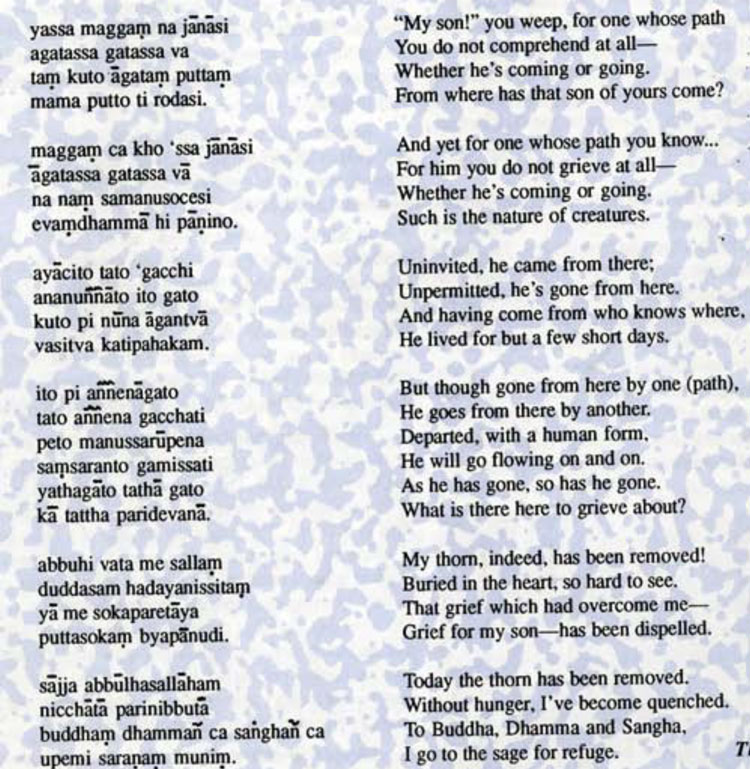This tender poem of loss and recovery was (probably) composed by Patacara, one of the leading women of the Buddha’s order of nuns. Born the daughter of a wealthy banker, Patacara fell in love with one of her father’s servants and ran off to live happily with him in a forest hamlet. Then, through a series of tragic accidents, she lost first her husband, then two sons, and finally her parents and brother. Wandering destitute, naked and mad with grief, she in time met the Buddha face to face, who showed her kindness when others would scorn her. She heard his teaching, joined the order of nuns, and went on to become one of the arahats, or worthy ones. Patacara helped many other women who were overcome by grief regain their sanity and quench the pain of their loss. The meter of the verse is based on eight syllables per line, and there is an interesting wordplay in the fourth stanza. The latter part of the phrase “As he has gone, so has he gone” corresponds to the word Tathagata— a favorite epithet of the Buddha.
Share on:
